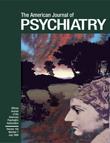Psychological Defense Styles in Women Who Report Childhood Sexual Abuse: A Controlled Community Study
Abstract
OBJECTIVE: The psychological defense styles of women who reported childhood sexual abuse were assessed and compared to those of women without childhood sexual abuse. METHOD: Subjects in a random community sample (N=354) of New Zealand women were interviewed and completed two relevant questionnaires, the Defense Style Questionnaire and the Dissociative Experiences Scale. RESULTS: Women reporting childhood sexual abuse showed more immature defense styles, and those who experienced the most severe childhood sexual abuse showed the most immature styles. Dissociation, however, as measured on the Dissociative Experiences Scale, was not linked to childhood sexual abuse. CONCLUSIONS: Reporting childhood sexual abuse was associated with more immature coping styles, although not dissociation, in this community sample of women. Coping styles are likely to be a major mechanism through which childhood sexual abuse increases rates of later psychological problems.



